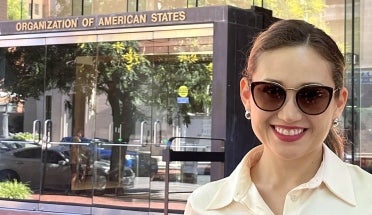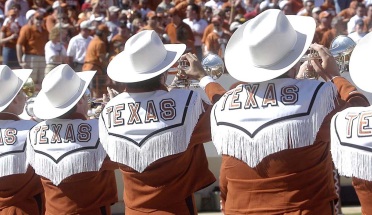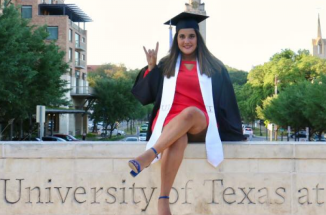
From Venezuela to Texas: Marielisa Figuera Wants to Make a Difference in the World
- Apr 1, 2019
- International Student and Scholar Services
Born and raised in Barquisimeto, Venezuela, Marielisa Figuera witnessed the recent crisis in her country and its impact on the lives of many Venezuelans. She came to the United States five years ago with a strong desire to make a difference in her country. Her dream is to work in the United Nations to bring peace and advance the lives of the future generation.
In 2014, Figuera attended Lone Star College in Houston before transferring to UT Austin in 2016. Last spring, she graduated with a bachelor’s degree in Latin American studies and international relations and global studies, bringing her one step closer to reaching her dream.
Figuera’s time as an international student at UT was some of the best years of her life. She was actively involved in several international affairs related student organizations, such as the International Affairs Society and the Central Texas Model United Nations. In June 2018, she was chosen as the director of the World Health Organization for the National Model United Nations. Through her involvement, she interacted with many key influential people – she even sat at the same dinner table with UT President Gregory Fenves and his wife. Now, she has joined the staff at the University and is working at the School of Undergraduate Studies.
In this Q&A, she shared her experience as an international student and her career goals.
Marielisa, why did you choose your majors?
The reason I chose my two majors, international relations and Latin American studies, was because of where I come from. Venezuela is currently going through a really bad crisis and I've always been kind of person who wants to make a difference and do something about it. In high school, I was really involved in the Model United Nations team and debate, and I was in the student government. So, when I was presented with the opportunity, I was like, “Hey, you're going to actually do something like that with your life.”
I also saw how great the program is here, the international relations program. It's less than 10 years old but it's one of the fastest growing programs in Liberal Arts. LLILAS, the [Lozano Long] Institute for Latin American Studies, is number one in the nation. When I saw that and I saw the classes they offer, I knew this is something that I wanted to do, this is something I felt passionate about. So, I just decided to go with it.
What I love about both of them is how they are so interdisciplinary that I had the opportunity to take classes with people from all different kinds of backgrounds and majors. I took science classes, I took government classes and business classes, economics. Just the opportunity to study something that I was passionate about and be able to hopefully in the future transform it into something tangible, and use it for the wellbeing of not only my country but the world, those were some of the reasons why I decided to go with international relations and Latin American studies.
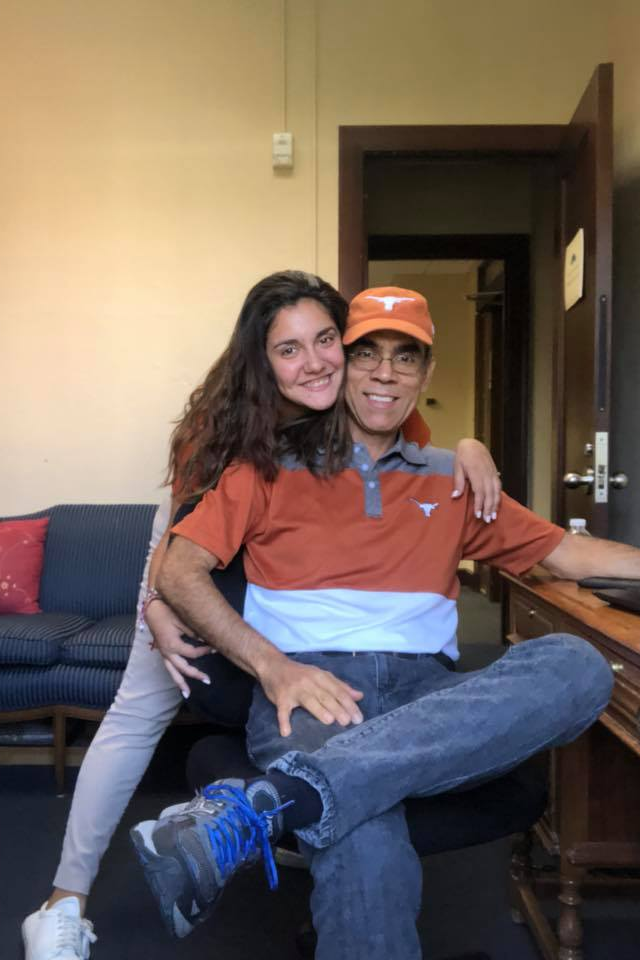
My dad would always tell me: "In order to do good in the future, it's important to learn about the past."
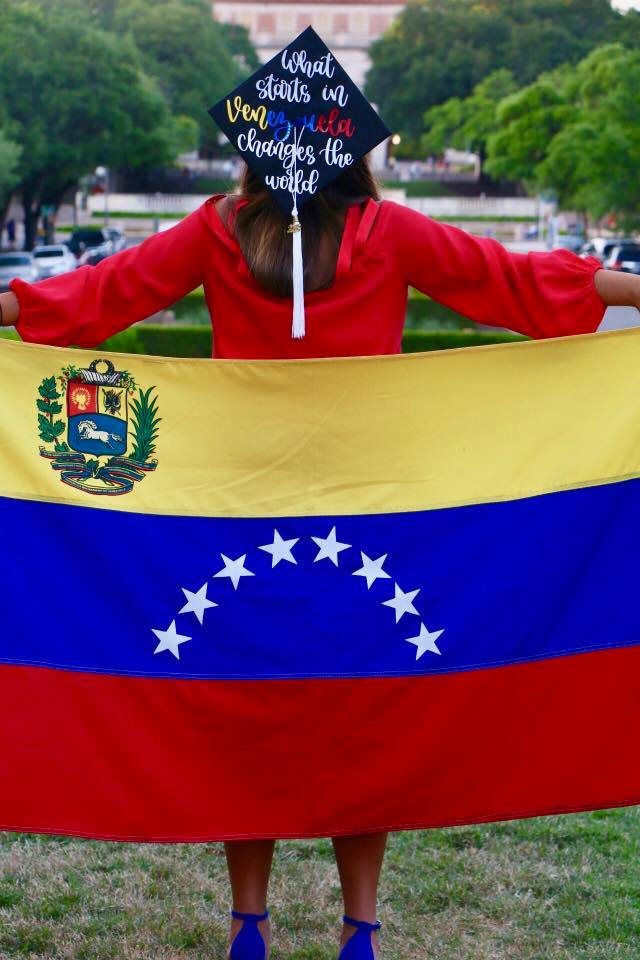
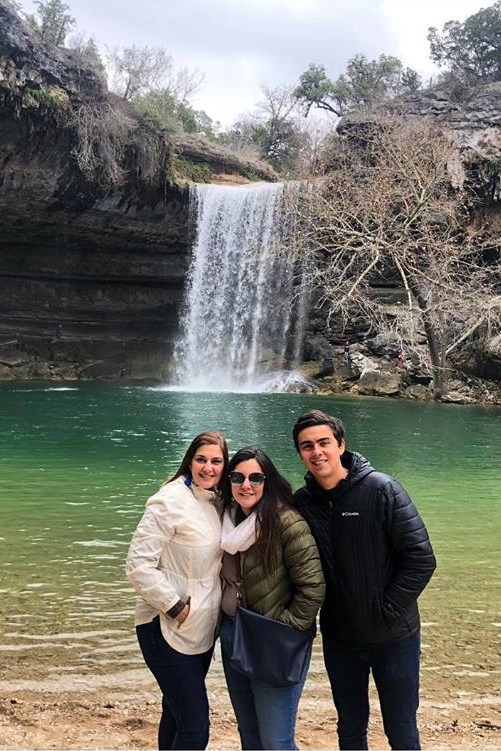
What are some important lessons you learned during your studies?
You know the motto of the University is “What starts here changes the world.” I feel like those two majors definitely go hand in hand with that motto.
With international relations, what I learned is that it's always important to listen to the other side. Diplomacy is about that, it’s about listening to others. Sometimes people make fun of it and say diplomacy is the art of making people follow what you said, but I don't think it's that way. I just see it as diplomacy is the art of negotiating and reaching an agreement for the wellbeing of everyone. Through international relations, I learned the importance of understanding other people's backgrounds, whether it's their cultural, political, economic or social background.
Through Latin American studies, I feel like I learned a lot about my roots and where I come from and how Latin America works, how and why Latin America is today the way it is. I feel like the two goes together in the sense that Latin America shows me about my past and international relations show me about my potential future. They both remind me of a saying that my dad would always tell me: "In order to do good in the future, it's important to learn about the past."
History is always told by the winner's point of view, so it was interesting to listen to it and learn from the other point of view, the other perspective. I learned a lot about how the native and indigenous people suffered. It was interesting in that sense to learn from a different perspective.
What has been your favorite part of being a Longhorn?
I guess just being able to have a community and to know that wherever I go in the world, if someone sees me with a Longhorn cap or something that says Texas, they will recognize it and I'll find Longhorns all over the world. That sense of belonging and being part of something greater than myself, it's something that I can be thankful for here at UT. And just having the opportunity to be surrounded by so many great people and being able to take advantage of resources that I wouldn't be able to back home, like really great professors, libraries, and honestly everything.
Why did you want to come to the U.S.?
The U.S. wasn't my first option. I wanted to go to Argentina. But my junior year of high school, my great uncle, who lives in Houston, reached out to my mom and said, “I know and I can see that the situation in Venezuela is getting worse and Marielisa has a really good academic record, why don't you send her to Houston?” We had this opportunity for me to come here to the U.S., so we took advantage of it. It wasn't easy. I remember the day I had to go to the embassy, all of the people who were in line in front of me got their visas rejected, which was scary. But I always remember that day, that if I didn't get my visa rejected, it was because my purpose was to come here and to get my degree here. It wasn't my first option, but now I can see it as the right option.
How was it like adjusting from Venezuela to here in Texas?
It was interesting. Texas and Venezuela share a lot of things in common besides having the same size. The weather and the people are also really friendly and Texas has a really rich culture, especially since it has a lot of like Mexican and Latin American influence. But of course, it was quite a transition, especially coming from what some people call a third world country or developing country into the U.S., I had to learn a lot of different things. And you're moving into a new country, new language, new culture.
But it wasn’t that difficult thanks to the fact that I had a support system that helped me throughout that. My first two years in Houston I felt like I was just in a vacation, a really long vacation. I lived with my uncle and his wife and I could see my cousins like every day or almost every day.
Then when I moved here, that's when reality really hit me. I had to live alone and learn how to take the bus, like I hadn't ever taken the bus before. I'm not really a good cook, so like cooking meals, managing your budget and all of that.
"Being different is good. You shouldn't be ashamed of where you come from or the fact that you don't even know where you're going."
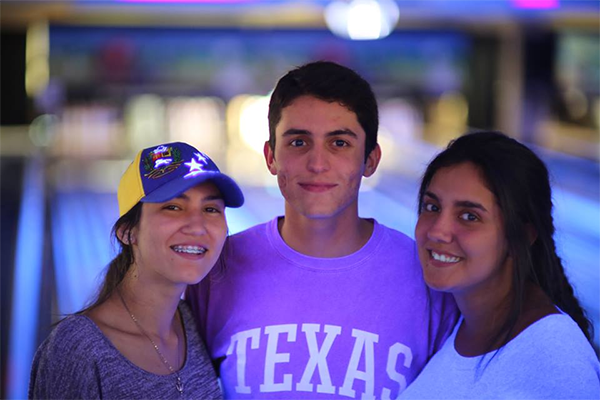

Did you meet friends from other parts of the world?
Yes, especially Latin America because we share the same language. Not only was I able to meet people from countries that I had heard about but never actually learn about them, but also find long-term friendships, people I could go to if I needed anything. I had a classmate who was from Egypt. You have the opportunity to meet with people from all over the world. I would say I have a very international group of friends. I even developed really good friendships with people who came as exchange students, and now I know that I have somewhere to stay in different parts of the world.
What is something that you learned from your peers and your professors?
That being different is good. That you shouldn't be ashamed of where you come from or the fact that you don't even know where you're going. Just to remember that you're here for a purpose. You're here to do something. So that helped me a lot, especially during my senior year.
"In the end, we might be different, but that's what makes us special and that makes us stand out."
What organizations were you a part of?
I was part of the International Affairs Society and the Central Texas Model United Nations. I was an officer for IGNITE, which is a group for female political empowerment. I was also really active with the Latin Economics and Business Association. And I also co-founded, in my senior year, a Venezuelan Student Association.
What expectations did you have before coming to UT Austin?
My expectations with UT were always really high, especially since I'm coming from a community college. People will always tell you that UT is the dream school. Once I got here, yes, it met my expectations. But I also realized that while UT is a really good school, once you're here, it's not so much about how good the University is, it's about how much good you can make out of the University. Because in the end, it doesn't matter where you go, it matters what you do with your degree.
What was the most memorable moment of your undergraduate career?
I have a top three. They're not in any particular order but the first one was when I was elected as the undergraduate speaker for a really fancy dinner that LLILAS had, and I was sitting at the same table as President Fenves and his wife. I had the opportunity to have lunch with him a couple of days before and he still remembered me. We're talking about someone who probably meets with a thousand students. He remembered me by my name. I was also sitting with really important people who appreciated me not only as a student but as a human being. And when they listened to my speech, they felt emotional about what I said. I always try to highlight a lot about Venezuela, because people need to know about what's going on. That was a really memorable moment and it was a dinner that took place in the Tower.
Then another one: I currently participate as a staff for the oldest and largest college-level Model United Nations in the world. Last year I was one of the only two students from UT Austin who went to that conference. And I had the opportunity as a staff member to be at the UN headquarters and talk in the General Assembly Hall. I was in a place where literally, what starts there changes the world.
And the last moment from my top three would be when I walk the stage during the graduation ceremony and I had my flag with me. It represented the end of a really lovely and memorable chapter in my life, but the beginning of a new one. I will never forget how people I didn't even know stood up and clapped because they were aware of the sacrifice that I had been through in order to get to that point.
I would say those three moments among many, many more have made this journey an unforgettable one.
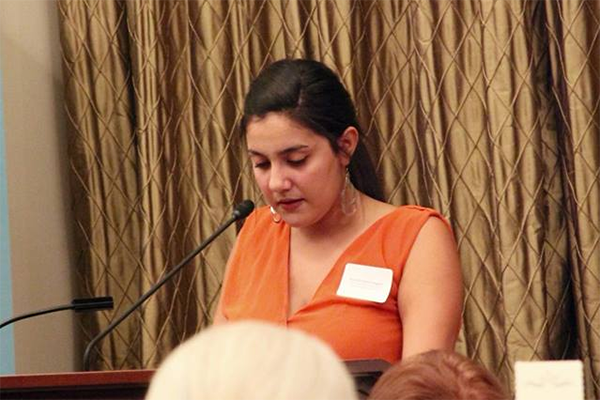
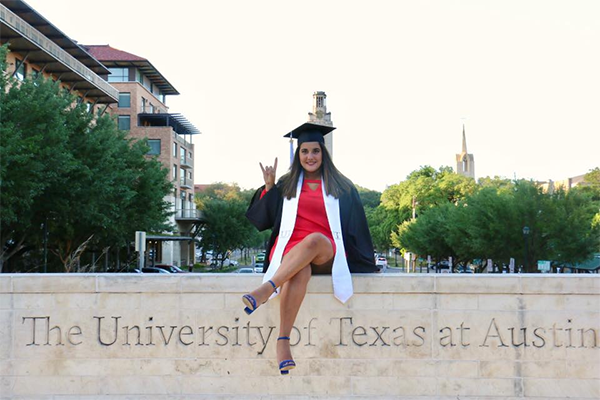
Where do you see yourself in the next 10 years and what are the goals that you want to accomplish?
Hopefully in the UN making a difference. And my goal is to be happy in life and to help others. I hope people will remember me. I was raised in a family where we were taught that if you want to make a difference in the world, you should start by yourself. I want to follow that and help our crazy but beautiful world be a better place for the next generations.
What advice would you give to international students?
To not be afraid of being different and to take advantage of everything that the school has to offer. But also, take advantage of where you come from. Because in the end, we might be different, but that's what makes us special and that makes us stand out. Don't get too comfortable with all the great things that the University offers you. I mean, you can also make a difference in the University, not only the University can make a difference in your life. To try to get as involved in the University as possible and make friends from all over the world. There are so many great organizations that people can join for all the different interests that they have, so take advantage of that.

